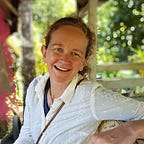Volunteering: Helpful or Hindering?
A while back a friend sent me an article written in The Spinoff entitled “We need to talk about voluntourism”. ‘Voluntourism’ or volunteer tourism, based upon the concept of ‘doing good’ while travelling, has been gaining popularity in recent years. NGOs connect people with projects (usually) in so-called developing countries, which may include assisting with construction, conservation and environmental projects, teaching English and the oft sought after orphanage tourism. While it is often possible to help for long periods of time — months or years, tourists often dedicate part of their holiday to a project, say a few weeks.
The Spinoff article, along with others (see The Conversation and SAIH Norway’s “Who Want’s to Be a Volunteer” Youtube clip) highlight many issues with voluntourism:
- Volunteers are often young and unqualified to do the tasks they are involved in;
- Volunteers can have limited positive impacts due to short term placements and not speaking the local language;
- Continuously revolving volunteers on short term placements can make it difficult for host organisations;
- Volunteers can displace work jobs that could be done by locals; and
- Experiences can be “superficial”, actually offering greater benefits for the volunteers rather than the local community. Instead of addressing the structural causes of poverty, inequality and other issues, they can contribute to maintaining poverty cycles and dependence upon outside assistance.
At the time I initially read The Spinoff article, I was working as a volunteer teacher for Burmese migrants in Ranong, Thailand, so it brought an interesting perspective to the work I was doing there. Through prior involvement with other NGOs and having previously studied aspects of international development and sustainable development, I was already aware of many of the issues raised in the article and I’d considered several of these potential problems prior to my departure to Ranong. Rather than become part of the problem, I wanted to empower, build capability and inspire.
Now, after spending 15 months being a volunteer teacher, (which I wouldn’t strictly call voluntourism) I would like to share some of my experiences which I relate to some of the afore mentioned problems.
Length of time matters — over time my relationships with students, staff and locals deepened, which helped me to better understand the complex social, economic and political context and also to appreciate some of the challenges that people were faced with. After one month I’d learnt the students’ names; after three I had started to build student relationships; after a year, I’d visited many students’ families and gained insight into many of the challenges they faced. Time helped me to build rapport, trust and mutual respect, essential components to having a purposeful impact.
Fulfilling a niche need —I was recruited to teach English, filling a gap in the teaching staff after a previous volunteer left. Aside from foreigners, English is being taught by amazing Burmese teachers in Ranong, of which English is usually their third or fourth language. However, native English speakers usually bring a higher level of English and also many different perspectives from around the world. Similar to other parts of the world, English has become paramount for international communication. It is the the common language of ASEAN (Association of South East Asian Nations), where there are reportedly around 1000 languages spoken. English language skills are important for Burmese migrants to effectively interact within their region and can lead to greater job opportunities.
Lack of language and understanding of different cultures can be challenging — Upon arriving in Ranong and the school I was to work in, I was immediately confronted with two distinct languages and cultures: Thai and Burmese. I quickly learnt some language basics, essential Burmese classroom words (do you understand, well done, keep going) and Thai language for daily life (market shopping, catching the bus, etc). However, I found that differences in cultural perspectives couldn’t be understood as quickly. I endeavored to remedy my knowledge gaps by reading historical books about Myanmar and Thailand, talking to colleagues and students about their culture and their past and participating in cultural events. From this I glimpsed some of the forces compelling families to migrate from Myanmar to Thailand seeking a better life. Through this I learnt more about Thai and Burmese cultural practices, viewpoints and traditions. I often found that my cultural norms and world views were different to my colleagues and I sometimes misread situations, which was rather confronting at times.
Applying qualifications and experience — Without any formal teacher training I was concerned that my previous experience and qualifications (an MSc in Education for Sustainability and ten year’s work experience in environmental consulting) may not be appropriate for the volunteer role. I was assured that I would be supported and that what the students really needed was a lot of love and understanding. Through on-the-job training, mentoring and professional development sessions I learnt much about teaching and have developed many skills to effectively interact with children and youth. However, without this support I don’t believe I would have been as effective in my role.
Aligning values — as a volunteer, you give a lot of yourself, for little or no financial reward. With such a personal commitment, I wanted to ensure that my values were similar to my host organisations. I was drawn to the my organisation’s values of love, compassion and service. Their respectful approach towards other religions by not attempting to convert the predominantly Buddhist population to Christianity also appealed.
Despite some of the bad press voluntourism and volunteering has received in recent years, taking heed of some of my experiences could help reduce some of the negative and unforeseen impacts of volunteering. Volunteering can foster cross-cultural sharing, purposeful, positive impacts and learning. It remains a powerful experience for people to engage in helping others.
